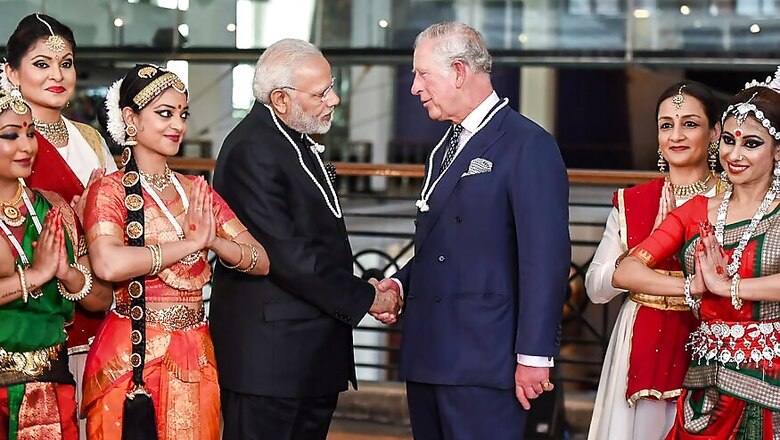
views
London: A Development Impact Bond (DIB), launched by Britain's Prince Charles last year to help improve education for children in India, on Monday said that it had enabled 30 per cent more students to overcome learning gaps and achieve basic literacy and numeracy skills.
At the one-year mark of the initiative, British Asian Trust found that 40 per cent of participating schools met or exceeded their targets in improving proficiency levels, outperforming non-DIB comparison schools in India.
Working across four programmes in the states of Delhi and Gujarat, the DIB helped deliver programmes to 600 schools, reaching over 100,000 students aged 5-11 in year one.
"In many ways, year one was a start-up year for both the DIB and NGOs testing the concept and allowing for adjustments to make improvements along the way," said Richard Hawkes, Chief
Executive, British Asian Trust founded by Prince Charles in 2007 to fight poverty in South Asia.
"The ambition remains that the learnings from the DIB will be used to create an education rate card', an assessment of costs for tried-and-tested delivery outcomes against funding, to improve
the quality of education, he said.
The Quality Education India DIB, launched in September 2018, set out to improve the quality of literacy and numeracy. The DIB seeks to develop a new funding approach that is focused on learning outcomes, ensuring the maximum impact is achieved for the investment provided. It is a four-year programme, set to finish in 2022.
The governance of the DIB is led by a Steering Committee comprising of British Asian Trust, the Michael & Susan Dell Foundation, UBS Optimus Foundation and Tata Trusts, together with Comic
Relief, the UK government's Department for International Development (DFID), steel tycoon Lakshmi N. Mittal's Mittal Foundation, BT and the Lawrence Ellison Foundation.
"The ultimate goal is to improve education standards in India, with the DIB paving the way for developing an outcome-based funding approach that has the potential to improve the lives of
hundreds of thousands of children," a statement from the Steering Committee noted.
Geeta Goel, Country Director, India, Michael & Susan Dell Foundation, said: "The early signs are that outcome-based funding models, with an incentive attached, have the potential to drive
quality in education and attract new forms of capital to sustain it.
"The key test for this DIB has been on proving the scalability of education programmes, without diminishing the quality of outcomes. There are a number of key learnings from year one, which will help to inform the remainder of the programme, as well as future DIBs and government policy decisions."
The results for year one were independently assessed and analysed by Gray Matters India (GMI). The DIB, claimed to be the largest of its kind for funding education, raised USD 11 million in its first phase of funding. The structure includes a results-based finance mechanism, where the outcome funders only pay for successful results. If the outcomes are not fully achieved, funders will pay proportionate to the results achieved. The working capital used by NGOs to deliver the programmes is provided by the "risk" investor, in this case UBS Optimus Foundation.
Phyllis Costanza, CEO UBS Optimus Foundation, said: "The UBS Optimus Foundation takes the same business-minded approach to philanthropy that we do in all aspects of our work at UBS, so our clients can be sure it delivers the social return they should be getting from their contribution.
"We closely monitor the programmes we're funding, we challenge assumptions regularly, and we hold grantees to extremely high standards of performance. That's why we decided to discontinue one
of our under-performing programmes."
All results for year one are based on a study of a random sample of 12,473 students from 155 schools participating in the DIB and 14,585 students from 180 non-participating schools that are chosen as comparison groups for the participating population.


















Comments
0 comment